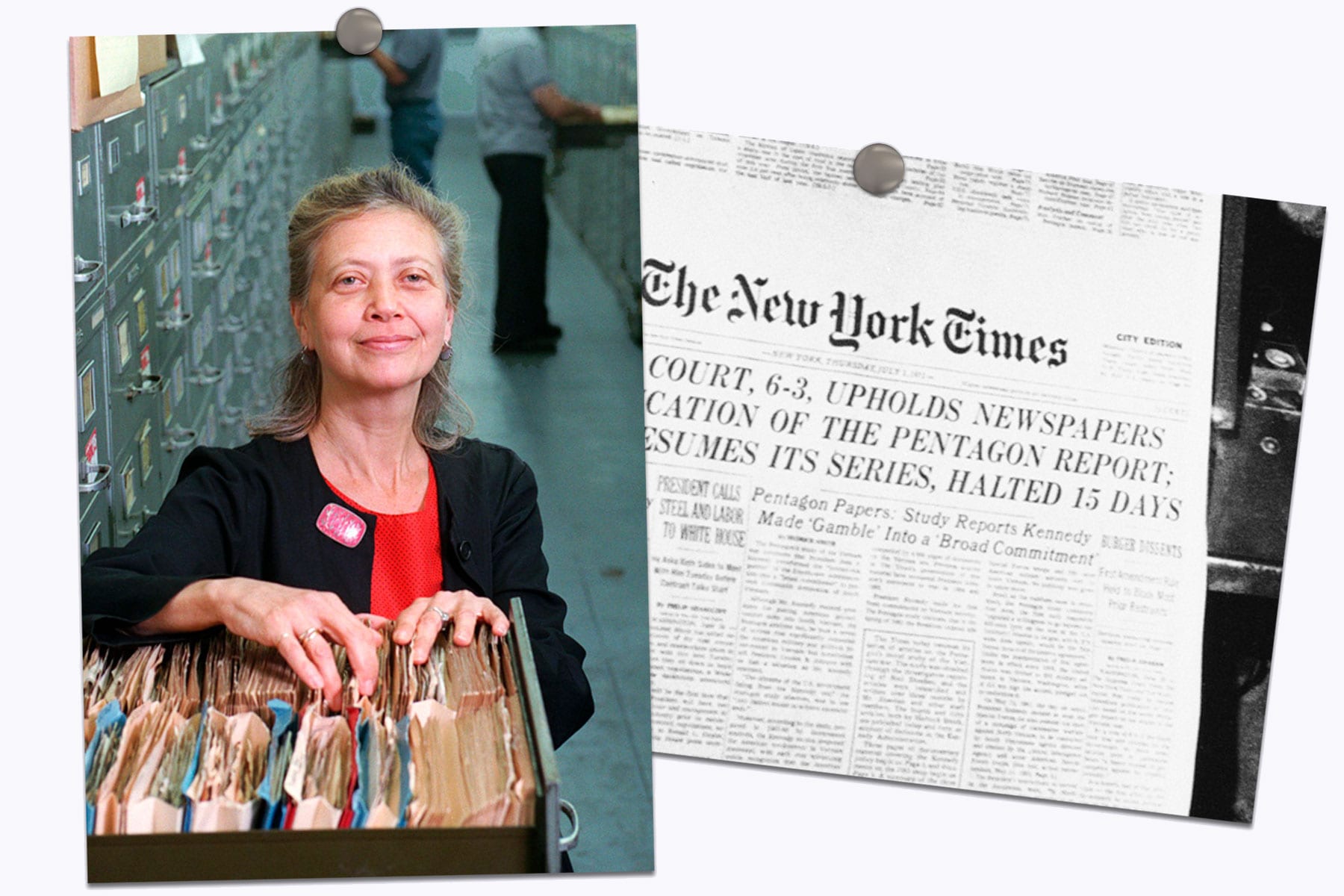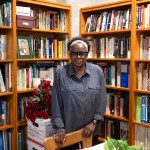“Follow me.”
Jim Greenfield, then the foreign news editor of The New York Times, said those words to a young researcher, Linda Amster, in March 1971, escorting her through what she described as a “huge, smoke-filled newsroom.” Outside, they met with an assistant managing editor and took a cab to the Hilton hotel in Manhattan, where Greenfield introduced Amster to a top-secret project: the Pentagon Papers.
“It was as cloak-and-dagger as you can imagine,” Amster said.
Amster remembers that Greenfield explained the papers were “top secret,” that they “could be raided” and “could all be imprisoned,” but that the plan was to publish them. She remembered him saying that he understood if she preferred not to work on the project.
“Show me the papers,” Amster responded.
Amster said she brought up this conversation with Greenfield when the Times published the first excerpt of the Pentagon Papers in June 1971. She had worked seven days a week for months alongside the reporters, but didn’t receive credit when the report came out.
“I asked him why my name wasn’t included, and he said, ‘Well, we knew that we all might have to go to prison, and you are a woman, and we don’t want you to have to go to prison,'” Amster recalled.
Amster retired from The Times as director of the newsroom research desk in 2005.” Fifty years later, The New York Times dedicated a special report to Amster as the only researcher on the Pentagon Papers, which, for the duration of the project, “took over her life.”
For months, Amster couldn’t tell anyone, including her husband and colleagues, about her work on the secret project. Her job included looking into whether anything in the 7,000 pages of classified documents had been published previously to determine whether they had exclusive information. To evaluate whether the Times had previously published anything, she went into “the morgue,” where newspaper clips lived, and secretly checked things out without leaving a trail, supplementing that with periodicals she accessed at Columbia University’s library. She also verified the reporters’ narrative sections.
“No one ever found anything that needed to be corrected, no errors,” Amster said. “Everything that ran was accurate, and that was because the Times realized this was a dynamite investigation and it needed to be accurate, which is why they put a researcher on it.”
Barbara Gray — City University of New York (CUNY) journalism school’s chief librarian and former New York Times director of news research, who worked with Amster — explained that though reporters and editors have research skills, a researcher’s unique specialization allows for more intensive investigative work when “the stakes are really high.” Many newsroom researchers have library and database training, and fact-checkers are sometimes included in the research division. She also noted the value of having more eyes on a story to catch potential mistakes, emphasizing the significance of “support roles,” like research, fact-checking, and copyediting.
“You don’t always get a credit on a story even though sometimes your reporting or research has contributed integrally to the story,” Gray said. She went on to say as the years have passed, “I think that I’ve seen many more researchers being credited for sure, and I think that that’s an excellent thing.”
Amster explained that when she started at The New York Times in 1967, their then-new research division was entirely women, who were most likely to have library experience. Women who had attended college had one of four degrees at the time, she said: “teaching, librarianship, social work or nursing” — fields that have a history of being undervalued in both recognition and payment. (In fact, she said, there was no man in the research department at The Times until she hired Jack Begg almost 25 years ago.)
“It has been apparent for a long while, nearly the breadth of my own career, that researchers are critical partners in the newsroom, yet for years received no public recognition, a credit, for the effort,” said Lynn Dombeck, ProPublica’s research editor. “It seems to be a reflection of society at large and the general power structures in play.”
And that structural discrimination translates into fewer dollars for people in the field. A 2016 study in the peer-reviewed journal Work, Employment and Society found “that occupational sex segregation is important for understanding the gender wage gap, since occupations dominated by women pay less.” Studies have also shown that payment amount drops in male-dominated professions when women join.
“You know I was very much a product of my time,” Amster said about researchers asking for story credit. “I think I would express once in a while, ‘Oh, it’s too bad,’ because you know you work very hard on it, but I never made an issue of it.”
In spring 2019, The Intercept, an online news publication, cut 4 percent of its workforce, eliminating many research positions. Laura Poitras, who helped start The Intercept’s parent company First Look Media, said in an email to staff that she was “sickened” by the decision “to eliminate the research team, which has been the beating heart of the newsroom.”
Gray explained that when a newsroom downsizes, the research positions are often some of the first to go, a reality she hopes will change. At CUNY, she stresses to students that the ability to thoroughly research a story is crucial for everyone who gathers and publishes the news. She explains that research and fact-checking are their own careers — a specialized field and not just an entry into reporting — and essential to every area of journalism, a point that is becoming increasingly popular in journalism education.
This is not something that was acknowledged openly for a long time. Amster worked at The New York Times from 1967 until she retired in 2005. She said that she asked to be a reporter later on in her career but was kindly turned down, the explanation being that she was too valuable as a research supervisor. Reflecting on almost 40 years of experience in the news, Amster said that she realized she “was already reporting” as a researcher, noting her work on the Watergate chronology in 1973 and her investigative research on a story about President John F. Kennedy’s doctor, who prescribed amphetamines for other famous patients, in 1972.
Ultimately, Amster said, “my contribution was significant.” As The Times eventually recognized through the length of her career — and afterward — “I made my mark in the newsroom.”





